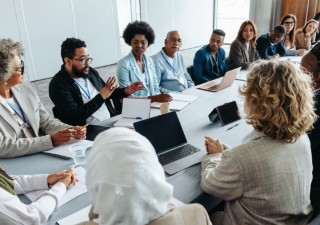IPOPHL seeks a mendments to IP Code
30 August 2019

The Intellectual Property of the Philippines has introduced amendments to the country’s Intellectual Property Code to beef up enforcement activities, more so in the digital space.
Among those outlined in Amendments to the IP Code, or House Bill No. 9148, which has been submitted to Congress, are the following:
1. IPOPHIL shall be authorized to issue notice and take down requests to those committing online piracy and counterfeiting.
2. Landlord liability shall also cover trademark infringement. Currently, landlord liability under the IP Code can only be used for copyright infringement.
3. The National Committee on Intellectual Property Rights (NCIPR) will become a permanent unit. The NCIPR plays a key role in preventing IP rights violations in the Philippines, especially when it comes to confiscating counterfeit items. As a permanent unit, each of its member agencies will have a permanent IP representative. Among its member agencies are the IPOPHL, Department of Trade and Industry, Department of Justice, National Bureau of Investigation and the Philippine National Police.
“It’s about time this kind of liability is codified,” says Michael Untalan, a partner at Bengzon Negre Untalan in Manila, in reference to extending landlord liability to trademark infringement.
“The copyright over the design of a Lacoste bag and the Lacoste mark itself are both infringed when counterfeits of the same goods are sold in the marketplace,” he says. “There seems to be no reason to hold landlords liable for copyright infringement only and, on the other hand, hold them free from liability for trademark infringement. For as long as the requirements of benefit, knowledge, control and acquiescence are present, extending landlord liability to trademark infringement will always be fair and reasonable.”
Narcisa Medina, a senior associate at Platon Martinez Flores San Pedro & Leano in Manila, says this amendment can help prevent counterfeiting. However, she adds that it could also be problematic. Sec. 155 reads:
“Sec. 155. Infringement. – Any person who shall, without the consent of the owner of the registered mark: xxx 155.3. Benefit directly or indirectly from the infringing activity of another person who commits an infringement in a commercial scale, provided that the person benefiting has been given notice of the infringing activity and has the right and ability to control the activities of the other person. This applies only in cases involving counterfeit trademark goods. If, upon obtaining such notice of the infringing activity, one acts expeditiously to remove, or disable access to, the material, he shall not be liable for either infringement or damages if there be no infringement found.”
Medina says the provision does not give a specific definition of the phrase “commercial scale.” Also, the scope of the landlord’s liability is very general. It also implies that the landlord may still be held liable if infringement was committed even if he immediately ordered to stop the activity after learning about it. She also took note of the lack of distinction between physical stores and online marketplaces.
“The enforcement of landlord liability could be considered unfair or unreasonable because it would be virtually impossible for the cyberspace landlords, whether through social media or through online shopping sites, to monitor the activities of its subscribers or account holders,” says Medina.
Aside from these, she observes that “liability attaches only if the mark involved is a trademark registered in the Philippines.”
As for the NCIPR becoming a permanent unit, Jonathan Perez, a partner at Bengzon Negre Untalan, says it is a welcome amendment though its mandate, functions and composition will not change.
“Issues on funding and staffing should not be a stumbling block considering that the proposed amendments require the IPOPHL to provide staffing support,” says Perez.
Medina’s firm is also optimistic about this proposal especially since, if approved, the IPOPHL will be designated as committee chair and the Office of the Special Envoy for Transnational Crimes will become a member agency.
Though he believes that these proposed amendments are generally comprehensive, Perez says more needs to be done.
“Section 177 on Economic Rights remains untouched. However, the right to reproduction and the right to first public distribution are central to discussions relating to access, copying and distribution of copyrighted works digitally or online. The application of the fair use exception is also something to consider, especially when use of a copyrighted work online is not willful and not commercial in nature,” he explains.
Medina shares the same opinion.
“The draft amendments mainly focus on supplementing the current IP Code by clarifying substantive law provisions in the fields of patents, copyright and other related rights to conform with international standards and practices; re-organization of the departments/bureaus of the IPOPHL; and institutionalizing an Intellectual Property Academy,” she says. “While these are aimed to strengthen IP protection in general, such proposed amendments do not enhance the protection granted by the current IP Code in the digital world.”
She adds that these issues have been excluded: patentability of inventions in the field of information communications technology and computerimplemented inventions, protection of internet domain names, the conflict between the duration of trademark registration filed locally versus those filed via the Madrid System and remedies of owners against bad faith registration of marks by trademark squatters.
Applicants under the Madrid System have a shorter period of trademark protection regardless of any claim for priority right.
Meanwhile, House Bill No. 9148 also aims to codify the IP Code’s first-to-file policy for trademark registrants.
“Bad faith marks should be clearly defined in the IP Code and provide for their treatment by specifying the cases where bad faith may be presumed to prevent the registration of the same at the first instance, without need of resorting to cancellation cases,” says Medina.
Espie Angelica A. de Leon






